

Search Smartraveller

Latest update
Exercise normal safety precautions in Japan.
Higher levels apply in some areas.
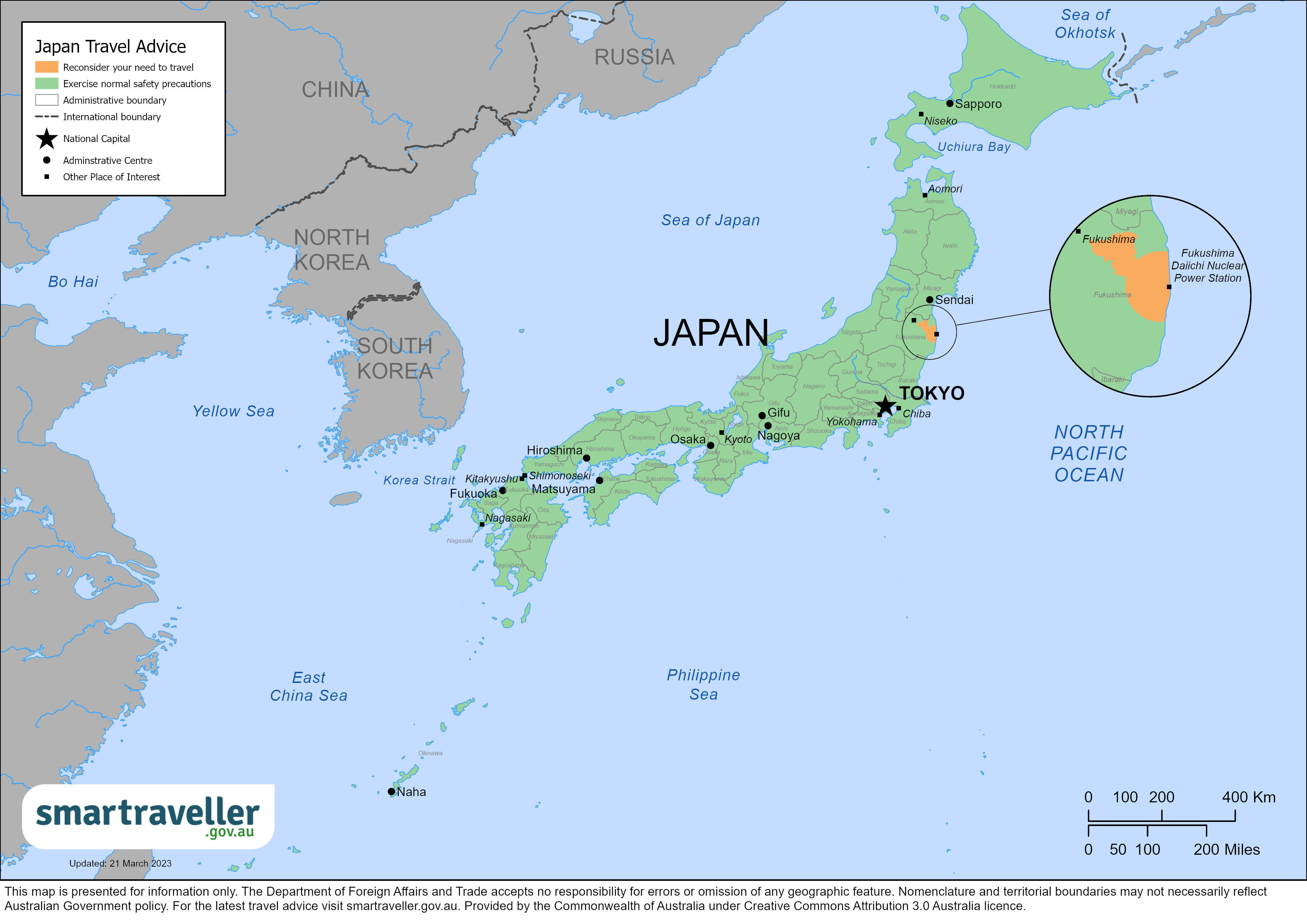
Japan (PDF 460.84 KB)
Asia (PDF 2.21 MB)
Local emergency contacts
Fire and rescue services, medical emergencies.
Call 110 or contact the local police at the nearest police station.
For Tokyo English-speaking Police, call 3501 0110 (Monday to Friday 8:30am to 5:15pm).
Advice levels
Reconsider your need to travel to the restricted areas near the Fukushima Dai-ichi nuclear power plant.
- Japan is prone to earthquakes and tsunamis. Japanese authorities have detailed plans to respond to natural disasters. In an earthquake, follow the advice of local authorities and emergency signage. Move to higher ground immediately if you're in a coastal region after a major earthquake. Check the Disaster Prevention Portal for more information.
- All major disaster warnings are published by the Japan Meteorological Agency . We recommend downloading NHK’s smart phone application to keep up to date with a natural disaster or other emergency alerts.
- A series of earthquakes occurred in Ishikawa Prefecture in Central Japan on and after 1 January 2024. Some infrastructure may remain impacted. Follow the advice of local authorities if travelling to affected areas.
- Regional tensions and the security situation, including with North Korea, could worsen with little warning. Tensions, which may affect Japan, could arise because of missile tests by North Korea. For advice see Japan's Civil Protection Portal Site .
- Japan has a low crime rate. Petty theft can happen, like bag snatching at popular tourist attractions. There's a risk of crime in bars and nightclubs. Crimes include overcharging, credit card fraud, forced withdrawal of large amounts of cash at ATMs, drink spiking and assault. Avoid taking large amounts of money and be vigilant in carrying your debit/credit card) when in bars or clubs and at parties.
Full travel advice: Safety
- Japan has strict rules about bringing medicine into the country, including some ingredients in ADHD and cold and flu medication. If you plan on bringing in medication, check if it's legal before you travel. See the Ministry of Health, Labour and Welfare website for more information.
- Restricted zones exist around the Fukushima Dai-ichi nuclear power plant. The 2011 earthquake caused the release of lethal radiation. Radiation levels in most parts of Japan, including Tokyo, are within the normal range.
- Medical facilities are of a high standard. You can find English-speaking medical staff in most major cities. You may need to pay upfront before you're treated.
Full travel advice: Health
- You must carry your passport (or Japanese residency card) with you at all times.
- Don't use or carry illegal drugs. Authorities can charge you if they find trace amounts of illegal drugs in your blood or urine.
- Japanese family law, including divorce and child custody, is very different to Australian law. For example, joint custody of a child after divorce is not a legal option, and there are limits to access for a non-custodial parent. The Family Courts in Japan generally consider that it is in a child's best interests for them to remain in their "usual place of residence". Courts, therefore, usually give sole custody to the parent who has taken care of the child most recently. If you're involved in custody or other family disputes, it is important to seek legal advice about your options both in Japan and in Australia. We have produced some general information about custody, child abduction and parental rights.
- Some employment agents mislead and encourage foreigners to work in Japan without the correct paperwork. If you want to work in Japan, verify the work offered and get the correct visa. Get legal advice before signing a contract.
- Japan has strict alcohol laws. The legal drinking age is 20. It's illegal to drive with any alcohol in your bloodstream. Allowing someone who has been drinking to drive is also illegal. Laws restrict alcohol consumption in specific areas on certain days, such as in Shibuya around Halloween night (31 October) and New Year's Eve. Smoking on the street is illegal in Tokyo and some other cities.
Full travel advice: Local laws
- Australians are eligible for Japan's visa exemption scheme for short-stay tourism and business travel. You don't need a visa to travel to Japan for up to 90 days. Entry and exit conditions can change at short notice. It is your responsibility to verify visa requirements from the nearest embassy or consulate of Japan.
- If you're travelling for any other reason, contact your nearest Japanese embassy or consulate to check if you need a visa, especially if you plan to work in Japan. Penalties may apply if you work in Japan on a tourist visa.
- It's dangerous to climb Mount Fuji from September to June.
- You can drive for up to 1 year with an Australian driver's licence and an International Driving Permit. If you're staying longer, you will need to obtain a local licence. Heavy snowfalls and ice in winter can make driving dangerous. It's illegal to drive with any alcohol in your bloodstream.
Full travel advice: Travel
Local contacts
- The Consular Services Charter details what we can and can't do to help you overseas.
- For consular help, contact the Australian Embassy in Tokyo or the Consulate-General in Osaka .
- To stay up to date with local information, follow the Embassy’s social media accounts
Full travel advice: Local contacts
Full advice
Terrorism is a threat worldwide.
Japan has security measures in place at key facilities, such as:
- public transport
- public event venues
- entry ports
More information:
- Terrorist threats
Regional Threats
Regional tensions and the security situation, including with North Korea, could worsen with little warning. Tensions, which may affect Japan, could arise because of missile tests by North Korea.
The Japanese Government has confirmed an increase in missile launch activity from North Korea towards Japan. At times, 'take shelter' alerts have been issued in some parts of Japan.
To stay safe:
- be alert to developments
- review the Civil Protection Portal Site advice from the Japanese Cabinet Secretariat for National Security Affairs and Crisis Management
- follow the instructions of local authorities
- check NHK World for the latest information
Japan has a low crime rate. Petty theft can happen, like bag snatching at popular tourist attractions from time to time.
There's a risk of crime in bars and nightclubs, especially in the Roppongi and Shinjuku (Kabuki-cho) entertainment areas of Tokyo. Both men and women have been targeted. You may be targeted with:
- overcharging
- fraudulent credit card charges
- forced withdrawal of large amounts of cash at ATMs
- drink spiking
- illegal drugs
You may be served drinks with higher alcohol content than normal. Some victims have woken in unknown places and discovered high credit card charges. Other victims have been taken to ATMs and forced to withdraw a large sum of cash while under the effects of drink spiking.
In these situations, you may find it hard to get a police report for your bank and travel insurer.
- never leave your drink unattended, and be cautious of accepting drinks from strangers or recent acquaintances
- don't take large amounts of cash to parties, bars, clubs or entertainment districts and be vigilant in carrying your debit/credit card
- Partying overseas
Cyber security
You may be at risk of cyber-based threats during overseas travel to any country. Digital identity theft is a growing concern. Your devices and personal data can be compromised, especially if you’re connecting to Wi-Fi, using or connecting to shared or public computers, or to Bluetooth.
Social media can also be risky in destinations where there are social or political tensions, or laws that may seem unreasonable by Australian standards. Travellers have been arrested for things they have said on social media. Don't comment on local or political events on your social media.
More information:
- Cyber security when travelling overseas
Mountain climbing and trekking
Trekking and mountaineering can be dangerous. Register your plans with local police before you go into the mountains, and take an emergency locator beacon with you.
Every year, a number of people die while trying to climb Mount Fuji.
Japanese Emergency Services warn against climbing from September to June when it's most dangerous. Check the official Mount Fuji Climbing website for each trail's climbing season dates.
Check your travel insurance covers you for extreme activities, such as mountain climbing.
Hikers and other travellers may encounter bears in parts of rural Japan. There have been incidents of fatal bear attacks. Some prefectural governments provide safety advice regarding bears.
If you plan to hike or camp in rural and mountainous areas of Japan:
- follow local safety advice and pay attention to
- warning notices
Snow sport safety
Back-country skiing (off-piste) and snowboarding is dangerous in most parts of Japan. You should stay within the boundaries of the ski resort.
Take an emergency locator beacon with you if you plan to explore other areas of the mountains.
Many travellers have suffered serious head injuries they could've prevented by wearing the right equipment.
Check your insurance policy covers you for snow sports.
Local ski resorts govern rules in each ski region. You can be arrested and detained for unruly behaviour.
If you're skiing in Japan:
- use a helmet and protective gear
- learn local rules and get weather updates from your hotel, a local tourism centre or the local ski resort
- obey local ski region rules
- only visit areas that local authorities mark as safe
- know what your travel insurance policy covers you for
Climate and natural disasters
A series of earthquakes occurred in Ishikawa Prefecture in Central Japan on and after 1 January. Some infrastructure may remain impacted. Exercise caution and follow local authorities' advice if travelling to affected areas.
Japan experiences natural disasters and severe weather , including:
- volcanic eruptions
- earthquakes
In an emergency, consular help may be severely limited.
Be prepared to deal with emergencies by:
- maintaining a basic emergency supply kit
- securing your passport in a safe, waterproof place
- follow the advice of local authorities, emergency services and local media updates. Make sure you react to any evacuation orders.
Disaster preparation
The Japan National Tourism Organization provides disaster preparation Safety Tips for visitors to Japan and other useful emergency information.
In any emergency or crisis, it's important to keep in contact with family and friends if possible.
The following stations broadcast emergency information in English:
- US Armed Forces station (810 AM)
- Inter FM (76.1 FM) in Tokyo
Japanese public broadcaster NHK provides a free smartphone app , which can be set to receive emergency notifications in English. This includes earthquake, tsunami, volcanic eruption, typhoon, and missile warnings.
If there's a natural disaster:
- follow local authorities' advice
- react to any evacuation orders
- monitor the media, other local information sources, and the Global Disaster Alert and Coordination System
- keep in contact with family and friends
Earthquakes and tsunamis
There's a constant risk of earthquakes and tsunamis.
The Japan Meteorological Agency provides information in English about earthquakes and tsunamis.
Know the dangers of a major earthquake and the emergency plan information in your area. Know where your local shelter is. This information is available from local or prefectural government offices, such as the Tokyo Metropolitan Government Disaster Prevention .
Local authorities are responsible during a crisis for helping people living or travelling within their jurisdictions.
If there's an earthquake:
- follow the advice of local authorities
- check the Japan Meteorological Agency for earthquake and tsunami information
- move to higher ground straight away if you're in a coastal region
Typhoons and severe weather
The typhoon season is from May to November, with most activity between July and September.
Local authorities broadcast current typhoon information through the local media and the Japan Meteorological Agency website.
If there's a typhoon approaching:
- check the latest typhoon information from the Japan Meteorological Agency’s website
- be alert to landslide risk areas
If there is heavy rain, stay indoors. If necessary, evacuate to a place on the second floor or higher. Find out the location of your nearest evacuation shelter and move there when safe to do so.
Keep away from areas with:
- steep hills at risk of landslides
- flooded streets
Be careful of fallen electrical lines.
Japan has 110 active volcanoes.
The Japan Meteorological Agency has a list of the latest volcano warnings.
If you plan to visit a volcanic area:
- be aware of alert levels, which can change at short notice
Winter weather
Parts of Japan experience heavy snowfalls and extremely low temperatures in winter.
Conditions can change suddenly.
Each year, people are injured or killed in snow-related incidents, including:
- motor vehicle accidents
- ice falling from roofs
- prolonged exposure to extreme cold
- ski accidents
Walking alone or under the effects of alcohol, or straying from marked trails, can be fatal.
Avalanches are common and heavy snowstorms can create deep powder snow drifts.
Travel insurance
Get comprehensive travel insurance before you leave.
Your policy needs to cover all overseas medical costs, including medical evacuation. The Australian Government won't pay for these costs.
If you are travelling while pregnant, confirm that your policy covers both your pregnancy and your baby in the event of a premature birth. Medical services for premature babies can cost over $A 150,000. See the advice for pregnant travellers page for more information.
If you can't afford travel insurance, you can't afford to travel. This applies to everyone, no matter how healthy and fit you are.
If you're not insured, you may have to pay many thousands of dollars up-front for medical care.
- what activities and care your policy covers
- that your insurance covers you for the whole time you'll be away
Physical and mental health
Consider your physical and mental health before you travel, especially if you have an existing medical condition.
See your doctor or travel clinic to:
- have a basic health check-up
- ask if your travel plans may affect your health
- plan any vaccinations you need
Do this at least 8 weeks before you leave.
If you have immediate concerns for your welfare, or the welfare of another Australian, call the 24-hour Consular Emergency Centre on +61 2 6261 3305 or contact your nearest Australian Embassy, High Commission or Consulate to discuss counselling hotlines and services available in your location.
Different environments, unfamiliar customs and language barriers may worsen existing mental health conditions. They may also trigger new issues.
Mental health treatment and services can differ to those in Australia.
If you need counselling services in English while in Japan:
- call TELL Lifeline (+81 3) 5774 0992
- call TELL Counselling (+81 3) 4550 1146
- General health advice
- Healthy holiday tips (HealthDirect Australia)
Not all medication available over the counter or by prescription in Australia is available in other countries. Some may even be considered illegal or a controlled substance, even if prescribed by an Australian doctor.
Japan has strict rules about bringing medication into the country. This affects both medication imports and medication you carry for personal use.
There are 4 categories (PDF 250 KB) of medicine. These are:
- psychotropic
You may need a permit or certificate to take medication into Japan. This will depend on the medication's classification, name and quantity.
Some medication is banned, including:
- the stimulant dexamphetamine, used to treat ADHD
- pseudoephedrine, found in some cold and flu tablets
Authorities could detain you if you're found with them.
For narcotic medications, including codeine, morphine and oxycodone, apply for a Narcotic Certificate. If you don't have this certificate when you enter Japan, authorities may confiscate the medication.
If you plan to bring medication, check if it's legal in Japan. Take enough legal medication for your trip. See the Ministry of Health, Labour and Welfare for more information.
Carry a copy of your prescription and a letter from your doctor stating:
- what the medication is
- your required dosage
- that it's for personal use
- Bringing medication into Japan
Health risks
Restricted areas exist around the Fukushima Dai-ichi nuclear power plant. The 2011 earthquake caused the release of lethal radiation. Radiation levels in almost all parts of Japan, including Tokyo, are within the normal range.
Monitor advice by the Japanese Government . There are ID checks points into the Restricted Areas . Do not enter without permission.
The Australian Radiation Protection and Nuclear Safety Agency (ARPANSA) provides details on radiation in Japan. ARPANSA has assessed the radiation levels in most parts of Japan, including Tokyo, to be within the normal range.
- Ministry of Health, Labour and Welfare
- Ministry of Economy, Trade and Industry
- Nuclear Regulation Authority
Insect-borne diseases
Japanese encephalitis can occur in Japan's rural areas. Get vaccinated against Japanese encephalitis before you travel.
To protect yourself from disease:
- make sure your accommodation is insect-proof
- use insect repellent
- wear long, loose, light-coloured clothing
Measles and rubella
Measles and rubella cases have been reported in Japan in recent years.
Make sure your vaccinations are up to date before you travel.
- Infectious diseases
- Measles immunisation service
- Rubella immunisation service
Medical care
Medical facilities.
Medical facilities are of a high standard. You can find medical facilities with English-speaking staff in most major cities, however, you may have difficulties finding English-speaking medical staff in some parts of Japan.
Medical care in Japan can be expensive. You may need to pay up-front or give a guarantee that you'll cover costs before you're treated.
The Japan National Tourism Organization lists hospitals with English and other foreign language-speaking staff.
There are many hospitals with decompression chambers in areas where diving is popular.
Medical information for Japan
You're subject to all local laws and penalties, including those that may appear harsh by Australian standards. Research local laws before travelling.
If you're arrested or jailed, the Australian Government will do what it can to help you within the scope of our Consular Services Charter , but we can't get you out of trouble or out of jail.
See the Australian Embassy Tokyo website for more information about arrests in Japan.
Be aware that you won't be allowed to make a phone call if you are arrested in Japan. You can also be detained for up to 23 days without any formal charge.
Authorities can arrest and charge you if they find trace amounts of illegal drugs in your blood or urine.
- Carrying or using drugs
- Tokyo Metropolitan Government
Japanese family law, including divorce and child custody, is very different to Australian law. For example, joint custody of a child after divorce is not a legal option, and there are limits to access for a non-custodial parent. The Family Courts in Japan generally consider that it is in a child’s best interests for them to remain in their “usual place of residence”. Courts therefore usually give sole custody to the parent who has taken care of the child most recently.
If you're involved in custody or other family disputes, consult a lawyer before you leave Australia or if you are already in Japan. We have produced some general information about custody, child abduction and parental rights.
Australia and Japan are both parties to The Hague Convention on the Civil Aspects of International Child Abduction.
If you're concerned that your child has been wrongfully removed to or detained in Japan, contact the Attorney-General's Department in Australia.
- Travelling with children
Employment law
Some employment agents may mislead and encourage foreigners to work in Japan without:
- the correct visa
- financial arrangements in place
This could leave you open to exploitation and prosecution.
Authorities have arrested Australians for working in the entertainment industry while in Japan on tourist visas.
If you want to travel to Japan for work:
- check the true nature of the work offered
- get the correct visa before arriving in Japan
- get legal advice before signing any contract
Living or working overseas
Police powers
Police can stop you on the street, demand identification and search you and your belongings.
If you're in a public place, police can seize:
- knives longer than 5.5cm, including blades and penknives
- any other weapons or things you could use as weapons
- any item they reasonably suspect you stole or have unlawfully
If they find any of these items on you, it’s likely that police will detain you.
If you're arrested, police can detain you for up to 23 days without charge, including for offences you might think are minor. Police might hold you for weeks or months while they investigate and undertake legal proceedings.
The initial police interview could last several hours. Police might record it in writing rather than electronically.
Under Japanese law, you can:
- remain silent
- access legal representation
- have an interpreter provided
However, in Japan police can question you without your lawyer present.
English interpreters may be substandard. Get a list of English-speaking lawyers around Japan from the Australian Embassy website.
If you're visiting Japan short-term as a tourist or for business, you must always carry your passport.
If you live in Japan, you must always carry your residence card.
It's illegal to:
- buy or drink alcohol if you're under 20 years old
- drive with any alcohol in your bloodstream
- allow someone under the influence of alcohol to drive a vehicle in which you're a passenger
The following activities are also illegal:
- importing or possessing firearms or other weapons without a permit
- smoking on the streets in some parts of Tokyo and other cities
- using UHF-CB radios (walkie-talkies) that don't meet Japanese standards, such as those purchased outside Japan
- resisting arrest or other actions that obstruct an official's duties
- flying a drone without a permit in many areas of Japan. Strict regulations apply under aviation laws
- having illegal drugs in your body (detected by urine testing).
Penalties for serious crimes, such as murder, include the death penalty.
Other sentences can include:
- heavy fines
- lengthy jail terms with hard labour
- deportation
Australian laws
Some Australian criminal laws still apply when you're overseas. If you break these laws, you may face prosecution in Australia.
- Staying within the law
Dual citizenship
Japan recognises dual nationality until the age of 20, after which the dual national must decide which nationality to retain.
- Dual nationals
Visas and border measures
Every country or territory decides who can enter or leave through its borders. For specific information about the evidence you'll need to enter a foreign destination, check with the nearest embassy, consulate or immigration department of the destination you're entering.
Australians are eligible for Japan's visa exemption scheme for short-stay tourism and business travel.
You don't need a visa if you're visiting for less than 90 days:
- as a tourist
- for a business trip or conference
- to visit friends and family
After entering under the visa exemption scheme, entry status cannot be changed to another visa status without departing and then re-entering Japan with the appropriate visa, such as a spouse, work, or study visa.
See the Embassy of Japan in Australia website for more information (including eligibility and required documents).
See the Ministry for Health, Labour and Welfare and the Ministry of Foreign Affairs websites for full details on entry requirements.
More information
- Immigration Bureau of Japan (Government of Japan)
- Customs and Tariff Bureau of Japan (Government of Japan)
Border measures
If you're transiting through Japan and your onward flight is leaving from a different airport, you must enter Japan. In order to transit between airports you will need to meet the entry requirements detailed above.
Please confirm any questions about transit directly with your airline.
Other formalities
You'll be photographed and fingerprinted electronically when you arrive, even if you're a permanent resident in Japan. If you refuse, immigration officers could deny you entry.
Travellers aged under 16 years, or who hold a diplomatic or official visa, are exempt.
If you'll be staying in Japan long term, you will need to register your details with the Immigration Bureau of Japan before arriving. Once you present the correct landing permission, you'll get a residence card. You must always carry it with you.
Ministry of Internal Affairs and Communication
Some countries won't let you enter unless your passport is valid for 6 months after you plan to leave that country. This can apply even if you're just transiting or stopping over.
Some foreign governments and airlines apply the rule inconsistently. Travellers can receive conflicting advice from different sources.
You can end up stranded if your passport is not valid for more than 6 months.
The Australian Government does not set these rules. Check your passport's expiry date before you travel. If you're not sure it'll be valid for long enough, consider getting a new passport .
Lost or stolen passport
Your passport is a valuable document. It's attractive to people who may try to use your identity to commit crimes.
Some people may try to trick you into giving them your passport. Always keep it in a safe place.
If your passport is lost or stolen, tell the Australian Government as soon as possible:
- in Australia, contact the Australian Passport Information Service .
- if you're overseas, contact the nearest Australian embassy or consulate .
If you lose your passport while travelling in Japan, try retracing your steps. Lost items are often handed into hotels, shop owners, train stations and police boxes.
It's important to look after your passport carefully. Passports that have gone through a washing machine or exposed to heavy rain will likely need to be replaced.
Passport with ‘X’ gender identifier
Although Australian passports comply with international standards for sex and gender, we can’t guarantee that a passport showing 'X' in the sex field will be accepted for entry or transit by another country. Contact the nearest embassy, high commission or consulate of your destination before you arrive at the border to confirm if authorities will accept passports with 'X' gender markers.
More information:
- LGBTQIA+ travellers
The Japanese currency is the Yen (JPY).
No restrictions apply to bringing foreign currency in or out of the country. Declare all amounts more than JPY 1 million or equivalent, when you arrive or leave. This covers all forms of currency, not only cash.
Cash is preferred in most places, but cards are becoming more widely used, especially in major cities.
Hotels accept major credit cards. Credit cards are still not widely accepted outside major cities.
Some ATMs at banks and convenience stores don't accept foreign cards.
Ask your bank if your cards will work in Japan.
Local travel
Check the Japan National Tourism Organization for emergency updates in English. The site also has advice on safe and hassle-free travel in Japan.
Fukushima and surrounding areas
There are some restricted areas around the Fukushima Dai-ichi nuclear power plant. This is due to the 2011 earthquake that resulted in the release of lethal radiation. The Japanese Government specifies these areas.
If you must stay overnight in restricted areas, ask local authorities for advice on how to minimise health risks.
Monitor and follow the advice from local authorities.
- Australian Radiation Protection and Nuclear Safety Agency (ARPANSA)
Travelling in Japan with a Disability
Japan has a number of resources available online with tips and advice on travelling around Japan as a tourist with a disability.
- Japan Travel – Traveling with a disability
- Japan Accessible Tourism Center
- Accessible Travel Japan
- Advice for travellers with a disability
Driving permit
To drive in Japan, you must hold either:
- a valid Japanese driver's licence, or
- a valid International Driving Permit (IDP) and a current Australian driver's licence
After 365 days, you need to get a Japanese licence.
Get your IDP before leaving Australia.
- Driving in Japan
- Tokyo Metropolitan Police Department
Road travel
Roads and vehicles are mostly well-maintained and traffic is orderly.
Vehicles travel is on the left-hand side like in Australia. In Japan it's illegal to drive with any alcohol in your bloodstream.
Heavy snowfalls and ice in the winter can make driving dangerous, especially if you are unaccustomed to driving in these conditions. Ensure your vehicle has the necessary equipment, including snow tyres, chains, and a dig-out kit. More information:
Driving or riding
Motorcycles
Check your travel insurance policy covers you for riding motorbikes.
Always wear a helmet.
It's safe to use taxis in Japan.
Taxi drivers usually open and shut the rear passenger doors remotely.
Public transport
Japan has modern and reliable rail and bus services.
Transport and getting around safely
DFAT doesn't provide information on the safety of individual commercial airlines or flight paths.
Check Japan's air safety profile with the Aviation Safety Network.
Passenger ferries depart from Tokyo (Yokohama) to many destinations across Japan as well as Asia.
Several international cruises stopover in Japan.
- Going on a cruise
Japan National Tourism Organization (JNTO)’s Tourist Information Center accepts telephone enquiries 24 hours a day. Call (+81 3) 3201 3331.
Contact your provider with any complaints about tourist services or products.
You can also contact the National Consumer Affairs Center of Japan’s Consumer Hotline for Tourists. Call (+81 3) 5449 0906 from Monday to Friday 10am to 4pm, excluding national holidays.
Emergencies
Depending on what you need, contact your:
- family and friends
- travel agent
- insurance provider
For Tokyo English-speaking Police, call (+81 3) 3501 0110 (Monday to Friday 8:30am to 5:15pm).
Always get a police report when you report a crime.
If a report is hard to get, seek advice from a lawyer or the English-speaking Police.
Your travel insurer should have a 24-hour emergency number.
Mental health services
Call TELL Lifeline services in English (+81 3) 5774 0992.
Call TELL Counselling services in English (+81 3) 4550 1146.
Living in Japan
English information on living in Japan is available from the:
- Japanese Cabinet Office
- Council of Local Authorities for International Relations
- Tokyo International Communications Committee
In Tokyo, for advice from the Foreign Residents' Advisory Centre , call (+81 3) 5320 7744.
Consular contacts
Read the Consular Services Charter for what the Australian Government can and can't do to help you overseas.
For consular assistance, contact the Australian Embassy in Tokyo or Australian Consulate-General in Osaka .
Australian Embassy, Tokyo
2-1-14 Mita, Minato-ku
Tokyo 108-8361
Phone: (+81 3) 5232 4111
Fax: (+81 3) 5232 4057
Website: japan.embassy.gov.au
Email: [email protected]
Facebook: Australian Embassy Japan
Instagram: @australianinjpn
X: @AustraliaInJPN
Check the Embassy website for details about opening hours and any temporary closures.
Australian Consulate-General, Osaka
16th Floor, Twin 21MID Tower
2-1-61 Shiromi, Chuo-ku
Osaka 540-6116
Phone: (+81 6) 6941 9271 or (+81 6) 6941 9448
Fax: (+81 6) 6920 4543
Website: japan.embassy.gov.au/tkyo/location_osaka.html
24-hour Consular Emergency Centre
In a consular emergency, if you can't contact an embassy, call the 24-hour Consular Emergency Centre on:
- +61 2 6261 3305 from overseas
- 1300 555 135 in Australia

Travelling to Japan?
Sign up to get the latest travel advice updates..
Be the first to know official government advice when travelling.
本ホームページは「JavaScript」が使われております。 「JavaScript」をONにしてご利用ください。
Consulate-General of Japan, Brisbane
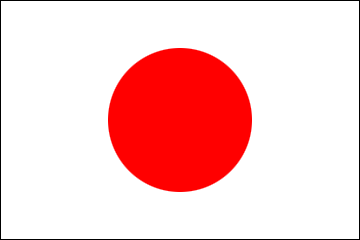
Current requirements and information on travel to Japan
1 required documents to enter japan.

2 Various Points of Contact
3 border enforcement notices, recommended information.
- How To Apply For a Visa
- General Information
- Amended Procedure of Entry into Japan
- Frequently Asked Questions
- Download Forms
- Customs and Quarantine in Japan
- Japanese Passport
- Short Term Stay
- Work, Study, Long Term Stay
- Working Holiday Visa
- Entertainer (Professional Sports Player [Golfer, Tennis Player, Surfer] )
- Australian Citizens
Back to Home
Back to Top
本ホームページは「JavaScript」が使われております。 「JavaScript」をONにしてご利用ください。
Embassy of Japan in Australia
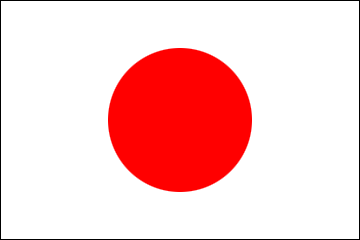
VISA and Travel Information
- We can only accept visa applications from residents of Canberra and Canberra's immediate surrounds (Queanbeyan, Jindabyne etc.) If you live elsewhere, please attend the diplomatic mission for your area or email us if you believe you have a humanitarian reason to apply in Canberra.

(Please note eVisa is only available for Single-Entry Tourist Visa. For any other Visas, please visit Embassy in person.)

- Visit Japan Web (Information Flyer)
- For safe travel in Japan (Medical and COVID-19 info from Japan National Tourism Organization)
- Border enforcement measures to prevent the spread of COVID-19 (Ministry of Foreign Affairs link)
- COVID-19 related information from the Immigration Services Agency of Japan (CoE, re-entry permit, etc.)
- Important notes regarding Animal and Plant Quarantine for those entering Japan
GENERAL VISA INFORMATION (ENGLISH, FREE HOTLINE 24/7)
1800 930 979
COVID-19 Travel Information and Restrictions
COVID-19 restrictions have been lifted and visa exemption for eligible travellers such as Australians has resumed.
Recommended Information
- Short Term (Tourism, Family Visits, Business) Visa
- Long-term (Work, Spouse, Student) Visa
- Working Holiday Visa
- Transit Visa & Transit Information
- Visa Enquiries & FAQ (Passport Validity, Fees)
- Police Certificate
- Foreign national coexistence policies
- Vaccinations
- Mobile Sim Cards
Back to Top
Planning a trip to Japan? Here's what you need to know
By Patrick Wright
- X (formerly Twitter)
From mid-October, Australians will once again be able to travel to Japan without a visa or tour group.
It's great news for Australians who have been waiting to travel to Japan after the pandemic.
But there are some important things to consider if you're planning a trip to Japan yourself.
Here's what you need to know.
How Japan's border restrictions are changing
From October 11, Japan is making several important changes to its border controls .
To break it down for you, the key points are:
- Tourists from Australia (and other countries with visa exemptions) can now travel to Japan without a visa;
- Tourists no longer required to travel on package tours;
- Travellers are no longer required to return a COVID-19 test on arrival unless they are suspected of being infected with COVID-19; and
- There is no longer a cap on daily arrivals to Japan. Previously, Japan was only allowing 50,000 entrants per day.
What documents do you need to enter Japan?
To enter Japan, you will need to provide a valid COVID-19 vaccination certificate with at least three doses or provide proof of a negative COVID-19 test taken within 72 hours prior to departure .
It's important to note that rapid antigen tests are not accepted — you will need to take an approved test, such as a PCR.
You will also need to fill out a COVID-19 questionnaire as part of Japan's quarantine procedures.
Japan's authorities recommend you upload your documents and fill out the questionnaire using the 'Fast Track' pre-application system and MySOS app .
When you're in Japan, you can simply open the app your phone to show quarantine officials.
"That's got your medical history. You show that app and it's all very efficient and done very smoothly," says Anthony Luxton, a Japan-focused travel agent in Kingscliff, New South Wales.
Do I need to wear a mask?
In Japan, you'll be expected to wear a mask when you can't social distance.
"Japan is still very conservative in terms of its approach to its pandemic and the virus," Mr Luxton says.
"Mask wearing is a must and social distancing is a must and hand-sanitising and temperature checks are everywhere."
Some restaurants will also enforce social distancing by physically separating diners.
"In restaurants themselves, you [may] have protectors between you and your partner. You can't simply sit and have a meal one-on-one, there is a plastic protector separating you," Mr Luxton says.
If you're planning a trip to a theme park or other major attraction, keep in mind that it might be harder to a purchase a ticket than before the pandemic.
"There's a lot of things that aren't the same: the frequency of some of the transfer services, and entries into the major theme parks [because] they're limiting pre-purchasing of tickets and controlling numbers," Mr Luxton says.
Is it expensive to travel to Japan now?
Japan is a relatively affordable travel destination, but flights are more expensive now than they were pre-COVID.
Mr Luxton says to expect to pay at least $1,700 for return flights from Sydney or Melbourne to Tokyo in coming months. However, there are often cheaper deals available on budget carriers.
"Even though more capacity comes on, pricing seems to creep up," he explains.
"[The airline industry] has to regain a lot of lost territory. There are other factors at play too, fuel prices and so on."
The good news is that once you're in Japan, you'll find your wallet stretches more than it would back home.
"The value for money is fantastic, no question," Mr Luxton says.
While Japan is a relatively cheap destination to start with, Australians might also benefit from the weak yen .
Each Australian dollar is now worth over 90 yen , a higher rate than at nearly any time in the last five years.
What to do in Japan
Whether you want to experience the hustle and bustle of Tokyo, stroll through the ancient capital of Kyoto or visit Japan's famous ski slopes, there's plenty on offer for tourists.
Japan is now entering autumn, which is a great time to explore the outdoors, Mr Luxton says.
"The country is ablaze in colour and the Japanese are great nature lovers," he explains.
"That rolls into the winter season, and there are quite a few Australians who are so keen to get [to Japan's ski slopes] because they haven't been for the last two seasons.
"The ski seasons in Japan have been brilliant [in recent years]."
The peak travel season is spring, from March to May. During spring, the weather is mild, and tourists can see Japan's famous cherry blossoms in bloom.
"It's a wonderful country to visit as the seasons roll on."
"It keeps offering different reasons [to travel] … it's very attractive from that point of view," Mr Luxton says.
Where you can get the latest travel information for Japan
- Embassy of Japan in Australia
- SmartTraveller Japan
- Information about current border measures from Japan's Ministry of Health, Labour and Welfare
ABC Everyday in your inbox
Get our newsletter for the best of ABC Everyday each week
Related Stories
Can a family travel overseas with only carry-on luggage taegan did.
'Don't be too scared to talk to randos': How to make the most of solo travel
This family's found a way to fund a years-long overseas adventure (without winning lotto)
Beaches, karaoke and food for days: What I discovered on my first trip to Korea
My first weeks in Japan: I was in a permanent state of curiosity and disbelief
本ホームページは「JavaScript」が使われております。 「JavaScript」をONにしてご利用ください。
Consulate-General of Japan, Melbourne - Victoria, Tasmania and South Australia
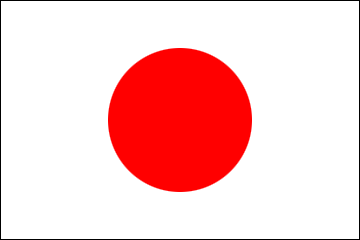
Frequently Asked Questions
- A. No. Australians who enter Japan as tourists may stay for up to ninety days as long as they hold an Australian passport which remains valid during their stay and do not receive any income while in Japan.
- A. In order to get a visa to work in Japan, you must first find a potential employer who is willing to act as your sponsor and arrange for your Certificate of Eligibility. If you then qualify for a visa, one will be issued by an overseas Japanese diplomatic mission.
- A. No. Once you are in Japan you cannot in principle change your visa. If you want to work in Japan you must obtain a working visa from a Japanese diplomatic mission in Australia or a third country.
- A. Please apply thourgh the accredited agency in person. We do not accept applications drectly from the applicants except for "Diplomatic visa", "Official visa", or individual situation in need of humanitarian consideration. Applicants reside in remote areas can apply for a visa by mail. Please refer here more details .
- A. Generally, Japanese visa is valid for 3 months after the issue. You may apply on the day of 3 months prior to your entry date of Japan.
- A. The passport must remain valid during the period of the stay but there is no minimum period of validity required. However, we recommend 6 months validity of your passport to ensure your smooth travel. Some countries require 6 months validity for transit as well.
- A. We post back your passport with visa only for the passport holders of visa fee exemption countries , such as Australia, New Zealand, USA, Korea, Malaysia, Bangladesh, Colombia and Pakistan. A self-addressed prepaid A4 envelope (express post is recommended) and " Pledge -apply by post" are to be included as well as other necessary documents.
- Applicants who is not the country of visa fee exemption countries need to arrange their collection at Consulate-General of Japan, Melbourne. The authorised person by applicants can collect their passport on their behalf with the photo ID of the authorised person, the letter of authorisation letter with the signature by the applicants and visa fee if it's necessary.
- A. Some nationals with certain conditions may need a guarantor. It is not necessary to have a guarantor unless it is specified on the requirements. Please check the requirements carefully.
- A. Some countries issue ID No. to citizen. If you do not have any ID issued by your government, please write 'N/A'.
- A. All visa applicants must come in person to apply for visa. As an exception, the family member (NOT friends or agents) can apply for a visa on bahalf of the applicant with the documents showing family such as marriage certificate and birth certificate. In that case the applicant who has NOT appeared yet has to come to collect his/her passport when the assessment is completed.
- A. Visa holders must enter Japan on or before the visa expires, or date of expiry. Upon arrival in Japan, the traveler presents the visa in a valid passport or travel document, and, at the officer’ s discretion, the immigration officer will grant or deny the visa holder permission in the form of a status (of residency) with a specific time period the traveler may stay in Japan.
- In most cases the period of stay granted by the immigration officer will be identical to the length of time designated on the visa “For stay(s) of.”Therefore, the visa expiration date is generally NOT the last day the visa holder may stay in Japan.
- Notes: 1. The Certificate of Eligibility must also be presented to the immigration officer if the traveler submitted a Certificate of Eligibility with his or her application.
- Notes: 2. A Certificate of Eligibility loses its validity if not presented to an immigration officer within three months of its issue date. This will always be before the expiry date of the visa.
- A. The number of days of your stay in Japan is counted from the first full day following your arrival. For example, if you arrive in Japan on the 1st of March, you begin counting 15 days from the 2nd of March, so your departure date should be no later than the 16th of March.
Recommended Information
- Visa top page
- Requirements
- Short term stay (tourist, etc.)
- Long term stay or Working Visas
- Working Holiday Visa
- Criteria for Visa Issuance
- Other Information
- Travel to Japan
- Police clearance certificate
Back to Top
- My Favourites
Travelling to Japan from Australia: Everything you need to know
Aussies can once again visit Nippon but under one strict condition.

This article may contain links from our affiliate and advertising partners. When you click on them, or share this content, we may earn a commission. Learn more

These photography tours will change how you travel
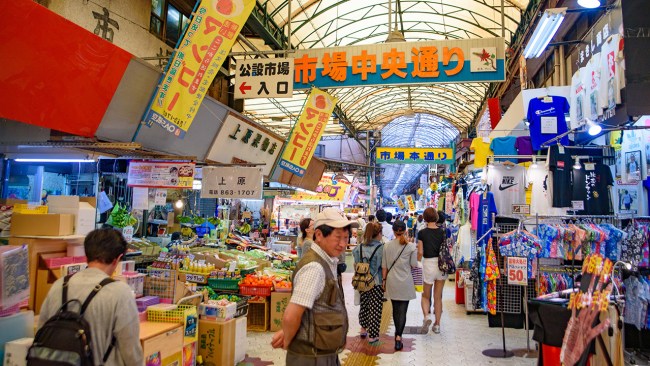
Chef’s guide to the world’s best markets

World’s most eye-popping animal encounters
It's becoming way easier to travel to Nippon.

Can Australians go to Japan?
Yes. And from October 11, visitors will no longer have to book their flights and hotels through a travel agency.
Do I need a visa to go to Japan?
Not if you have an Australian passport. Again, this kicks off from October 11.
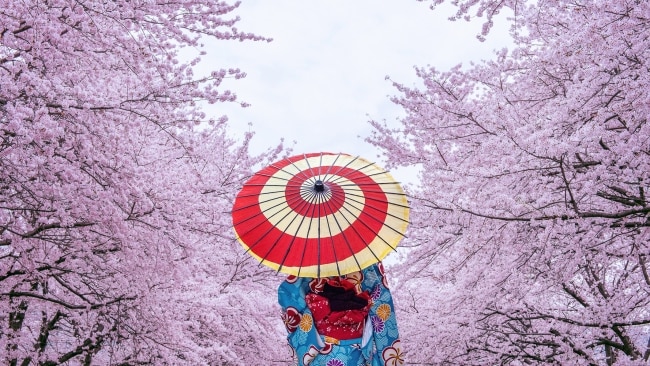
What sort of identification is required in Japan?
This is not one of those countries where can dump your passport in the hotel room safe after you arrive. It’s advised that you carry it with you at all times. That said, it is one of the safest countries in the world to do so.
What is the best time of year to go to Japan?
It’s a more a case of when is the best time not to go to Japan. Typhoon season is from May to November is the broad warning but it all depends on your planned activities. The cherry blossom blooms from late March to mid April and it’s a skiers paradise from mid January to early April.
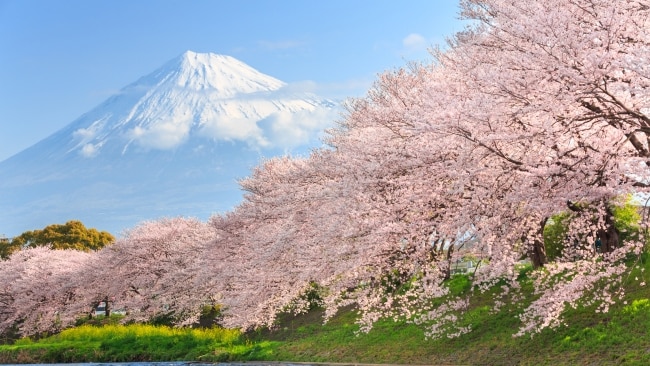
Does it get cold in Japan?
The fact that it has hosted a winter Olympics (Nagano 1998) should answer that question. Remember it’s a northern hemisphere nation so the season are opposite to ours and in Tokyo from December to March, the high temps barely nudge double figures celsius.
How long does it take to fly to Japan?
From Sydney, a flight to Tokyo averages just under 10 hours.
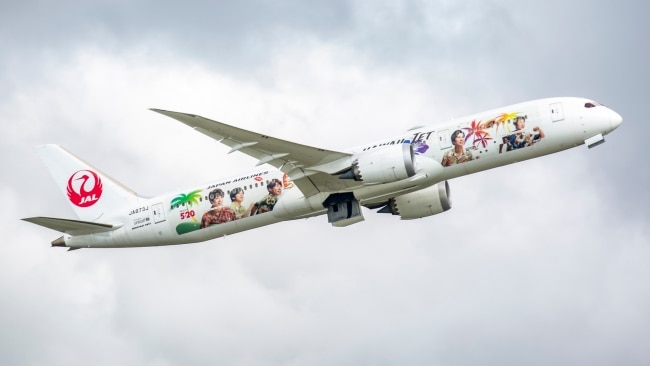
What can’t I take into Japan?
According to Australian government advice site Smart Traveller , “Japan has strict rules about bringing medicine into the country, including some ingredients in ADHD and cold and flu medication. If you plan to bring medication, check if it's legal before you travel.” Also be careful about what you ingest in the lead up to travel as authorities can charge you if they find trace amounts of illegal drugs in your blood or urine.
What’s the legal drinking age in Japan?
Twenty. Not 18. While you’re at it’s illegal to drive with any alcohol in your bloodstream and allowing someone who has been drinking to drive is also illegal.
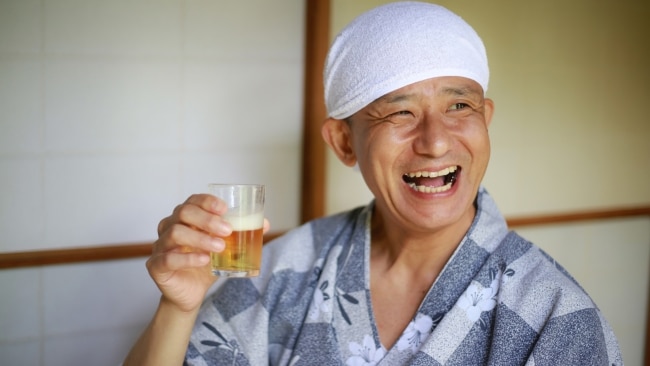
Do you need to quarantine in Japan from Australia?
Travellers from Australia whose vaccinations are up to date, have received a booster and can present a vaccination certificate don't need to quarantine, isolate or complete additional testing on arrival. That said, requirements are changing constantly, so check the Ministry of Foreign Affairs website .
Do you need to have a Covid test before going to Japan?
From September 7, 2002, no pre-arrival PCR tests are required if you have three shots of an approved vaccine.
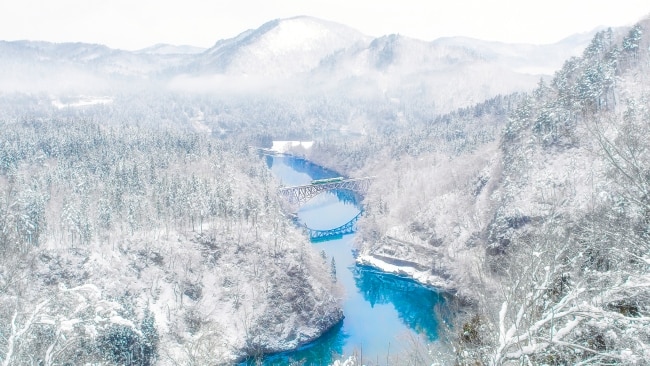
What Covid documentation is required to get into Japan?
According to Smart Traveller, “You'll be required to make a “Written Pledge” and may be asked to install MySOS, a video call and location-based app, onto your smart phone upon arrival. This will be used for contact tracing purposes. You must also complete a health questionnaire from the Ministry of Health, Labour and Welfare prior to travelling to Japan. The completed questionnaire generates a QR code that you will need to present on arrival. This is in addition to the aforementioned Covid vaccine certification and valid passport.
Do you need travel insurance for Japan?
Yes, yes and yes. Medical costs can be extremely high for visitors.

Besides Covid are any other vaccinations required?
If you’re going to be in rural areas, get a shot for Japanese encephalitis and ensure your measles and rubella vaccinations are up to date. It’s a small risk but not one worth taking.
What is the currency of Japan?
Japan’s currency is the yen - A$100 equals approximately 9400 yen.
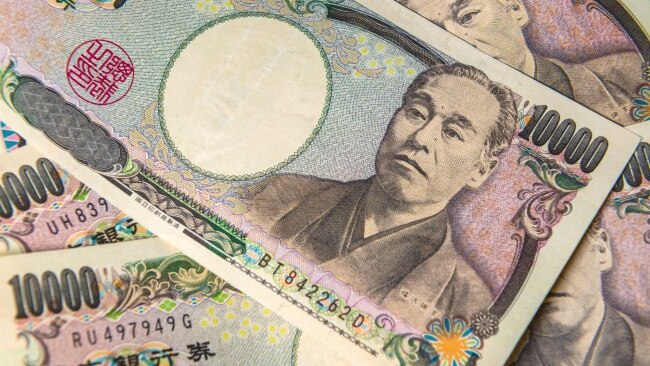
Can you haggle in Japan?
Best not to. Some sections in Osaka are cool with it and if you’re spending massive amounts at department stores but generally no.
For more handy etiquette tips so you don’t make a goose of yourself in Japan click here and here .
See also:
- A first timer’s guide to onsen etiquette
- Never do this with soy sauce! A Japan food guide
- 9 train travel tips for navigating Japan
David divides his time between travelling and stand up comedy. His favourite destinations encompass both and he has performed in London, New York and Las Vegas. Sometimes even on stage. He chafes in polyester, can handle no more than two martinis and his safe word is degustation.
Snap to it for a tour that’ll challenge your photography skills.
Based in Bondi, Aussie chef and TV host Guy Turland loves nothing more than discovering food markets around the world.
Based on Phillip Island, this wildlife biologist and park ranger’s love of watching animals in their natural habitats has taken her all over the world. She shares her favourite experiences.

Never break these 9 rules on a camping trip
Whether you want to pitch a tent or drive a home on wheels, we've got all you need to know about camping and caravanning - from campsite etiquette to the right gear to budget hacks to stretch your holiday dollars.
We use cookies on this site to enhance your user experience. If you continue to browse you accept the use of cookies on our site. See our Cookie Policy for more information.
- Media & PR
- Meetings & Events
- School Groups
- Travel Trade
- Select Language 简体中文 繁體中文(香港) 繁體中文(臺灣) India (English) Bahasa Indonesia 한국어 ภาษาไทย Tiếng Việt Singapore (English) Philippines (English) Malaysia (English) Australia/New Zealand (English) Français Deutsch Italiano Español United Kingdom (English) Nordic countries(English) Canada (English) Canada (Français) United States (English) Mexico (español) Português العربية Japan(日本語) Global (English)
- India (English)
- Bahasa Indonesia
- Singapore (English)
- Philippines (English)
- Malaysia (English)
- Australia/New Zealand (English)
- United Kingdom (English)
- Nordic countries(English)
- Canada (English)
- Canada (Français)
- United States (English)
- Mexico (español)
- Global (English)
- Fujiyoshida
- Shimonoseki
- Ishigaki Island
- Miyako Island
- Kerama Island
- Tokyo Island
- Koka & Shigaraki
- Hida Takayama
- Ginza, Nihonbashi
- Beppu & Yufuin (Onsen)
- Ginzan Onsen
- Nagasaki Islands

- Kumano Kodo
- Shikoku Karst
- Amami Oshima
- Hachimantai
- Omihachiman
- Aizuwakamatsu

- Diving in Japan
- Skiing in Japan
- Seasonal Flowers in Japan
- Sustainable Outdoors
- Off the Beaten Track in Japan
- Scenic Spots
- World Heritage
- Home Stays & Farm Stays

- Japanese Gardens
- Japanese Crafts
- Temple Stays
- Heritage Stays
- Festivals and Events
- Theater in Japan
- Japanese Tea Ceremony
- Cultural Experiences in Japan
- Culture in Japan

- Local Cuisine Eastern Japan
- Local Cuisine Western Japan
- Local Street Food
- Japan's Local Ekiben
- Japanese Whisky
- Vegetarian and Vegan Guide
- Sushi in Japan Guide
- Japanese Sake Breweries

- Art Museums
- Architecture
- Performing Arts
- Art Festivals
- Japanese Anime and Comics
- Japanese Ceramics
- Local Crafts

- Scenic Night Views
- Natural Wonders
- Theme Parks
- Samurai & Ninja
- Iconic Architecture

- Wellness Travel in Japan
- Japanese Ryokan Guide
- A Guide to Stargazing in Japan
- Relaxation in Japan
- Forest Bathing (Shinrin-yoku)

- Experiences in Japan
- Enjoy my Japan
- National Parks
- Japan's Local Treasures
- Japan Heritage
- Snow Like No Other
- Wonder Around Japan

- Visa Information
- Getting to Japan
- Airport Access
- COVID-19 Practical Information
- Anime Tourism
- Countryside Stays
- Sustainable Travel
- Accommodation
- Sample Itineraries
- Travel Agents
- Deals and Tours

- Traveling by Rail
- How to Travel by Train and Bus
- JR Rail Passes
- Train Passes and Discounted Tickets
- Scenic Railways
- Renting a Car
- Yokohama Cruise Port Access
- Travel Brochures
- Useful Apps
- Accommodation Types
- Online Reservation Sites
- Eco-friendly Accommodation
- Luxury Accommodations
- Traveling With a Disability
- Hands-free Travel
- How to Book a Certified Tour Guide
- Volunteer Guides
- Tourist Information Center

- Japanese Manners
- Sustainable Travel in Japan
- Spring in Japan
- Summer in Japan
- Autumn in Japan
- Winter in Japan
- Seasonal Attractions
- Monthly Events Calendar
- Cherry Blossom Forecast
- Autumn Leaves Forecast

- Japan Visitor Hotline
- Travel Insurance in Japan
- Japan Safe Travel Information
- Accessibility in Japan
- Vegetarian Guide
- Muslim Travelers
- Safety Tips

- All News & Blog
- Travellers Blog
- Guides to Japan
- Stories of Japan
- The Other Side of Japan
- Media Releases
- JAPAN Monthly Web Magazine

My Favorites
${v.desc | trunc(25)}
Planning a Trip to Japan?
Share your travel photos with us by hashtagging your images with #visitjapanjp
2023 Australian visitor numbers to Japan match pre-pandemic while December numbers set record

New data released by Japan National Tourism Organization (JNTO) shows the number of Australians visiting Japan in 2023 came close to matching levels seen in 2019, reaching 98.6% of pre-pandemic visitation numbers, despite the country only fully opening to tourists and offering visa-free travel in October 2022, and scrapping proof of vaccination requirements in May 2023.
The numbers also highlight a significant growing demand for travel to Japan, with the destination welcoming 23% more Australian visitors in December 2023 compared to December 2019. Interest in the 2023/24 winter snow sports season is set to continue to drive visitation into the start of the new year, as well as the popular spring cherry blossom season.
“The pace at which Australians have returned to Japan has heartened us, and we are so pleased to see these numbers bouncing back. It confirms what we know – Australians truly love Japan. Australians are warmly welcomed in Japan, and we cannot wait to see what this year brings,” said JNTO Sydney Office Executive Director, Naoki Kitazawa.
Additional airlift from Australia to Japan has also helped fuel the resurgence in visitation, with all major carriers including Qantas, Virgin Australia, Japan Airlines (JAL), All Nippon Airlines (ANA) and Jetstar all either increasing existing route frequency, or adding new routes, including the recently launched Virgin Australia Cairns to Tokyo Haneda service, and the soon-to-launch Jetstar Sydney to Osaka (Kansai International Airport) service.
JNTO is encouraging Australians, particularly repeat visitors, to dig a little deeper into Japan and journey beyond the already popular hotspots, exploring rural and lesser-known destinations, whether it be to hike in one of the many National Parks or experience a traditional temple-stay – among so many other possibilities.
“We hope to see Australians explore Japan responsibly and sustainably, partly to help us avoid over-tourism, but also to discover lesser-known corners. Everyone should make time to explore amazing cities like Tokyo and Kyoto, but we always encourage Australians to venture into the rural and regional areas of Japan which are home to a variety of authentic culinary, outdoor, and cultural experiences,” Kitazawa added.
Just over 25 million tourists visited Japan in 2023, and overall, December 2023 saw the highest-ever volume of tourists for a December period – over 8% higher than the pre-pandemic level seen in December 2019. Australia is one of few long-haul markets around the world to have either closely matched or exceeded pre-pandemic visitor numbers alongside the US, Canada, Mexico, and the Middle East.
For more information, please contact: James Cooley | [email protected] | +61 401 316 701
- Previous Article
- Back to Overview
- Next Article
- JNTO Sydney
Please Choose Your Language
Browse the JNTO site in one of multiple languages

Passport validity and foreign visas
Can i use my current passport until it expires.
If you're in Australia and your current passport is valid when you renew, it will be cancelled. This means you will be unable to use it for travel. You should avoid travelling outside Australia using the expiring passport. If it’s cancelled while you’re overseas, you may be stuck without a valid passport.
When you apply to renew your passport, we recommend marking your old passport as a reminder that’s it’s no longer valid, for example, placing a sticker on its cover.
When you receive your new passport, you should:
- update travel bookings with your new passport number
- keep it separate from your old passport to avoid taking the wrong passport to the airport.
Other countries and airlines have passport validity rules that influence how you use your passport. For example, you can’t enter some countries if you have less than 6 months validity on your passport from the date you intend to leave that country. This may apply when you’re transiting or stopping over in the country.
Check your passport’s expiry date before you travel. If you’re not sure it will be valid long enough, consider renewing.
Visit Smartraveller.gov.au for trusted travel advice on safety and security issues, local laws and customs and entry requirements.
Can I use foreign visas from an old passport?
Many countries don’t accept visas in expired passports. You may have to get new visas. Keep in mind that some visas are electronic, and there may be no physical evidence of them in your passport.
If you're planning to travel to the United States of America under the visa waiver program, you need to have a passport with an electronic chip. All current Australian passports, except emergency passports , have an electronic chip.
Find a foreign embassy or consulate

Countries, economies and regions
Select a country, economy or region to find embassies, country briefs, economic fact sheets, trade agreements, aid programs, information on sanctions and more.
International relations
Global security.
- Australia and sanctions
- Australian Safeguards and Non-proliferation Office (ASNO)
- Counter-terrorism
- Non-proliferation, disarmament and arms control
- Peacekeeping and peacebuilding
Regional architecture
- Asia Pacific Economic Cooperation (APEC)
- Association of Southeast Asian Nations (ASEAN)
- East Asia Summit (EAS)
- Australia and the Indian Ocean region
- Pacific Islands regional organisations
Global themes
- Child protection
- Climate change
- Cyber affairs and critical technology
- Disability Equity and Rights
- Gender equality
- Human rights
- Indigenous peoples
- People Smuggling, Human Trafficking and Modern Slavery
- Preventing Sexual Exploitation, Abuse and Harassment
- Australia’s treaty-making process
International organisations
- The Commonwealth of Nations
- United Nations (UN)
- World Trade Organization
Foreign Arrangements Scheme
Trade and investment, about free trade agreements (ftas).
- The benefits of FTAs
- How to get free trade agreement tariff cuts
- Look up FTA tariffs and services market access - DFAT FTA Portal
- Discussion paper on potential modernisation – DFAT FTA Portal
About foreign investment
- The benefits of foreign investment
- Investor-state dispute settlement (ISDS)
- Australia's bilateral investment treaties
- Australia's foreign investment policy
For Australian business
- Addressing non-tariff trade barriers
Expo 2025 Osaka, Kansai
Stakeholder engagement.
- Ministerial Council on Trade and Investment
- Trade 2040 Taskforce
- First Nations trade
Australia's free trade agreements (FTAs)
- ASEAN-Australia-New Zealand (AANZFTA)
- Chile (ACLFTA)
- China (ChAFTA)
- Hong Kong ( A-HKFTA & IA)
- India (AI-ECTA)
- Indonesia (IA-CEPA)
- Japan (JAEPA)
- Korea (KAFTA)
- Malaysia (MAFTA)
- New Zealand (ANZCERTA)
- Peru (PAFTA)
- Singapore (SAFTA)
- Thailand (TAFTA)
- United Kingdom (A-UKFTA)
- USA (AUSFTA)
- Trans-Pacific Partnership (TPP)
- European Union (A-EUFTA)
- India (AI-CECA)
- Australia-UAE Comprehensive Economic Partnership Agreement
- Australia-Gulf Cooperation Council (GCC)
Trade and investment data, information and publications
- Fact sheets for countries and regions
- Australia's trade balance
- Trade statistics
- Foreign investment statistics
- Trade and investment publications
- Australia's Trade through Time
WTO, G20, OECD, APEC and IPEF and ITAG
Services and digital trade.
- Service trade policy
- Australia-Singapore Digital Economy Agreement
- Digital trade & the digital economy
Development
Australia’s development program, performance assessment.
- Development evaluation
- Budget and statistical information
Who we work with
- Multilateral organisations
- Non-government organisations (NGOs)
- List of Australian accredited non-government organisations (NGOs)
Development topics
- Development issues
- Development sectors
2030 Agenda for Sustainable Development
- Sustainable Development Goals
Where we deliver our Development Program
Humanitarian action.
Where and how Australia provides emergency assistance.
People-to-people
Australia awards.
- Australia Awards Scholarships
- Australia Awards Fellowships
New Colombo Plan
- Scholarship program
- Mobility program
Public diplomacy
- Australian Cultural Diplomacy Grants Program
- Australia now
- UK/Australia Season 2021-22
Foundations, councils and institutes
- Australia-ASEAN Council
- Australia-India Council
- Australia-Indonesia Institute
- Australia-Japan Foundation
- Australia-Korea Foundation
- Council for Australian-Arab Relations (CAAR)
- Council on Australia Latin America Relations (COALAR)
International Labour Mobility
- Pacific Labour Mobility Scheme
- Agriculture Visa
Australian Volunteers Program
Supporting organisations in developing countries by matching them with skilled Australians.
Sports diplomacy
Australia is a successful global leader and innovator in sport.
A global platform for achievement, innovation, collaboration, and cooperation
About Australia
Australia is a stable, democratic and culturally diverse nation with a highly skilled workforce and one of the strongest performing economies in the world.
Australia in Brief publication
This is the 52nd edition of Australia in Brief, revised and updated in February 2021
Travel advice
To help Australians avoid difficulties overseas, we maintain travel advisories for more than 170 destinations.
- Smartraveller – travel advice
International COVID-19 Vaccination Certificate
Prove your COVID-19 vaccinations when you travel overseas.
- Services Australia
The Australian Passport Office and its agents are committed to providing a secure, efficient and responsive passport service for Australia.
- Australian Passport Office
24-hour consular emergency helpline
- Within Australia: 1300 555 135
- Outside Australia: +61 2 6261 3305
- Getting help overseas
- Visas for Australians travelling overseas
- Visas to visit Australia

Country information
- Japan country brief
- Japan country fact sheet [PDF]
Travel information
- Read the travel advice for Japan
- Subscribe to updates
- Get the right travel insurance
- For how we can help Australians overseas, see the Consular services charter
- Australian Passports Office
- Visa information
Heads of Government
- Includes Heads of State, Prime Ministers, Foreign, Trade and Aid Ministers
Embassies and consulates
- Australian Embassy in Tokyo, Japan
- Australian Consulate-General in Osaka, Japan
- Embassy of Japan in Canberra, Australia
- Consulate-General and Consulates of Japan in Australia
Contact details
Director, Japan Section Australian Department of Foreign Affairs and Trade Ph: (+61 2) 6261 1111
We’re sorry, this site is currently experiencing technical difficulties. Please try again in a few moments. Exception: request blocked

Visa to Japan
Apply online for eVisa to Japan
Visa to Japan » Japan Visa Requirements » Japan Visa for Australian Citizens
Japan Visa for Australian Citizens
- Japan Consultant
- May 17, 2021
Table of Contents
Australians in Japan
Japan is one of the world’s most popular tourist destinations, drawing millions of visitors each year. This island nation has a lot to offer for anyone who is looking to sightsee or even work there.
With a unique blend of tradition and cutting-edge technology, Japanese society stands out from many countries as a must-see location.
Due to this, Japan has become a mainstay location for any Australian citizens looking to go abroad. So much that between 2019 to early 2020, over half a million Australians visited Japan!
The year prior saw 458,000 travel to Japan, and the year before that saw 393,100 embark and return from the Land of the Rising Sun. This means there was over a 30% increase in a span of just two years.
With the Covid pandemic occurring, naturally, these numbers went down, but as soon as restrictions began to ease, there has been a rise in those choosing to visit Japan for the first time or undertake a return trip.
At the moment, there are several different types of visas for japan, including both short-term and long-term permits (this is obtained via a Japanese Embassy or Consulate). On top of this, Japan is introducing a new electronic visa system as well.
Australian Citizens and Short-Term Stays in Japan (90 days and below)
Fortunately, any Australian traveler looking to visit Japan doesn’t need to apply for a visa, so long as their stay is 90 days or less.
This is because Australia is one of the 68 Japan Visa Exempt countries. Citizens from these countries can enter Japan for tourism, to visit relatives, or for business purposes for the allocated 90 days’ timeframe.
However, once the electronic visa system is completely in place, all Australian citizens will most-likely have to apply for an e-Visa for short-term trips.
Australian Citizens and Long-Term Stays in Japan (3 months up to 5 years)
For any Australian citizen looking to study, work, join a family member, or travel for any other long-term purpose, it is necessary to apply for a Japan Visa. Long-term visas are issued as either single or double entry permits, working visas, or student visas.
Each of these documents allows for a different period of stay in Japan. The application fee is between A$ 35.00 AND A$ 71.00 (or ¥3,000 – ¥6,000).
The time taken to process this is between 5 – 10 business days and the approved document can be collected from the Japanese Embassy in Australia.
Single Entry Permits (Up to 3 months)
Single entry permits allow the visitor to enter the country on only one occasion. The period of validity of the single-entry visa is three months. This period will be affixed to a citizen’s passport upon entry to Japan. An extension of the visa validity is not possible.
Double Entry Permits (2 Short Visits over 6 months)
Double-entry permits, as the name indicates, allows for a second re-entry into Japan. This permit will allow for 2 short trips to be taken within 6 months.
Alternatively, an Australian citizen can apply for a longer-term stay with a Japan Work Visa or a Japan Student Visa.
Japan Work Visa (3 months up to 5 years)
Working visas are considered long-term stay visas and cover the type of work that requires high-level professional knowledge or skills. Simpler labor jobs such as waiters, construction workers, sales representatives, etc., cannot obtain this visa.
As this type of entry permit has a high entry threshold, it allows for more extended periods of stay – up to five years!
To get a better idea of what types of professionals are sought out, their roles include:
- Artists; Business Managers;
- Diplomats or Officials;
- Instructors;
- Intra-company Transferees;
- Journalists;
- Legal and Account Services;
- Medical Specialists with Japanese Qualifications;
- Professors.
This visa is perfect for anyone who has a job that meets these prerequisites and plans to work in Japan full-time.
Japan Student Visa (3 months up to 2 years and 3 months)
Alongside the work visa, students can also acquire a long-term student visa. This is specifically designed for anyone who wants to study in Japan, including prospective Australian citizens.
Visas can be obtained with the intention of attending a university or any other educational facility within the country.
Japan eVisa for Australian Citizens (Up to 30 days)
This new eVisa has been made to streamline the visa registration process and is already available to citizens of China, and it is highly likely that Australians will be eligible to apply via the registration process in the coming year.
This Japan eVisa is valid for 90 days and permits a 30 day stay for any successful applicant.
The eVisa is a much faster way to register for a shorter visit to Japan as they are issued within 72 hours of application, they are available entirely online (meaning no visits to the Japanese Embassy are necessary), and the approved document will be sent in PDF form to the applicant’s email address.
On top of this, the Japanese government has stated its intention to add other types of visas to the online system in the future, with the development of an online mechanism for obtaining a single-entry visa in Japan underway.
The plan is to get the online system and electronic visa for Japan up and running by early 2021, before the summer Olympics in Tokyo.
Japan Visa Requirements for Australian Citizens
There are different requirements depending on the type of visa requested. The conditions for an eVisa are the most straightforward, only needing an Australian passport, which must be valid for at least another 6 months and have at least two blank pages for the entry/exit stamps.
Japan Work Visa Requirements
Most people who want to enter Japan through a working visa application should get a Certificate of Eligibility first.
The Certificate of Eligibility is a document issued by the Japanese Ministry of Justice. To receive a Certificate of Eligibility, you must have a sponsor in Japan, such as an employer, a teacher, a parent, or others.
In order to apply for your Certificate, your sponsor in Japan must contact the local Immigration Office. Once released, the certificate will be mailed to you, and you will be able to apply for a visa using the documents mentioned below.
The application for the Certificate of Eligibility is free and will take up to three months to complete.
Documents required by visa applicants who have a valid Certificate of Eligibility include:
- A valid passport and a photocopy of the photo page of the passport;
- One Japan Work Visa Application Form. This should be both completed and signed. You can download a copy of the application form from the website of the Japan Ministry of Foreign Affairs.
- A passport-sized photograph (3.5 cm x 4.5 cm or 2in. x 2in and taken within the past 6 months);
- A photocopy of the original Certificate of Eligibility
On top of this, additional documents may be required.
Japan Student Visa Requirements
The application procedure for a Japan Student Visa is unconventional but quite similar to the work visa. It is divided into two parts: first, you must obtain a Certificate of Eligibility. This is applied for on your behalf by the university where you will be training.
Then, at a nearby embassy or consulate, you apply for a visa of your own.
A more specific breakdown would include:
- A letter of admission issued by any Japanese educational institution you plan on studying in (describing the course that is to be attended, the length of the stay, and any other necessary details regarding the studies);
- Any previous diplomas, credentials, or documentation related to your academic history;
- A document proving that the applicant has a sufficient amount of money to cover the expenses of the stay in Japan (this can be a bank statement, a sponsorship letter, any document proving that you have financial help, a scholarship proof, etc.)
How to apply for the Japan Visa from Australia?
Long-term visa application.
Collect the documents mentioned above and submit them to the Japanese Embassy. The application process can take a few weeks, so bear this in mind before planning any travel.
eVisa Application
Fill the application form in, providing both personal and travel details, alongside and travel details, email address, passport information. Make sure to double-check the form before submitting it, ensuring there are no errors.
You will then be given the option of how you want to pay for the visa.
Within 72 hours, if your eVisa application is successful, you will receive it in PDF form to the relevant email address.
Benefits of applying for the Japan e-Visa for Australian citizens
The best way to get to know the country at least a little bit before you visit it for a long-term stay, is by visiting it for a short stay in advance. Apply for an online Japan visa and visit this beautiful country for up to 30 days.
All you need is a valid Australian passport! Since the requirements are that elementary, traveling to Japan became effortless. Take a look at the following list of benefits before you apply:
- A short processing time (only 72 hours from submitting the form)
- Elementary documents (the only thing that’s needed is a valid passport)
- A quick and intuitive application process (that consists of three simple steps)
- Applying takes place entirely online (no visits to the Embassy!)
- Full assistance of an e-Visa support team
- The approved document arrives in PDF form straight to your email box!
Spare a few minutes and apply using your phone, laptop, PC, tablet, or any other device with an internet connection!

IMAGES
COMMENTS
in Australia, contact the Australian Passport Information Service. if you're overseas, contact the nearest Australian embassy or consulate. If you lose your passport while travelling in Japan, try retracing your steps. Lost items are often handed into hotels, shop owners, train stations and police boxes.
For any issues using Visit Japan Web, see the instruction manual or make an inquiry directly. To enter Japan from the 29th of April, please enter with a valid visa and passport OR a visa exempt passport. We recommend the use of Visit Japan Web to assist with your customs and immigration declaration procedures. Contacts
1 Required Documents to Enter Japan. 1. Your valid visa and passport OR visa exempt passport. 2. Complete the customs and immigration p rocedures via Visit Japan Web OR complete the customs and immigration p rocedures by paper upon arrival to Japan. Visit Japan Web is a web service for smooth arrival procedure at airport.
Q. As an Australian citizen with an Australian passport, do I require a tourist visa to enter Japan? A. No. Australians who enter Japan as tourists may stay for up to 90 days as long as they hold an Australian passport which remains valid during their stay and is still valid when departing Japan. Tourists in Japan may not undertake any form of ...
Any foreign visitor entering Japan must have a valid passport for the duration of their stay, and all visitors must comply with the conditions of their visas. See below for information about the current visa requirements for Japan. Visa Information. If you have any further questions, please contact the Japanese embassy or consulate in your ...
COVID-19 related information from the Immigration Services Agency of Japan (CoE, re-entry permit, etc.) Important notes regarding Animal and Plant Quarantine for those entering Japan. GENERAL VISA INFORMATION (ENGLISH, FREE HOTLINE 24/7) 1800 930 979. COVID-19 Travel Information and Restrictions.
To break it down for you, the key points are: Tourists from Australia (and other countries with visa exemptions) can now travel to Japan without a visa; Tourists no longer required to travel on ...
Passport services are by appointment*. Due to refurbishment works at the Australian Consulate-General in Osaka between late February and mid-April 2024, the availability of in-person appointment slots will be limited. We encourage you to apply by postal mail if the service you are requesting does not need to be done in-person.
The Coronavirus travel restrictions page is a travel advisory updated regularly in line with the official information provided by the Government of Japan. COVID-19: Practical Information for Traveling to Japan is an information page built to help travellers plan a safe trip around Japan. See specific measures taken by Japanese organisations below.
Frequently Asked Questions. 2024/2/20. Note: This information is designed as a guide only and does not contain detailed information. If you require further explanation, please contact Japanese Visa Information Hotline: (+61 AUS) 08 7130 3370 (24 hours/7days, English only) . This hotline is designed for visa applicants residing in Australia.
Who is currently allowed to travel to Japan? Entry to Japan is back to pre-pandemic visa arrangements. In other words, passport holders of countries including the UK, most of Europe, USA, Canada, Australia and New Zealand can make use of Japan's 90-day visa-free short term stay arrangements just as it was before March 2020. During the pandemic, the Japanese government separated all countries ...
Australian citizens do not need a tourist visa when travelling to Japan in 2024. Australian passport holders can stay in Japan for a short period of time (for 90 days). Please, read all the information below to make your trip easy and safe. Don't rely on information from only one source. Please, with at least one more source listed in the link.
Travel advice. To help Australians avoid difficulties overseas, we maintain travel advisories for more than 170 destinations. Smartraveller - travel advice; International COVID-19 Vaccination Certificate. Prove your COVID-19 vaccinations when you travel overseas. Services Australia
Eligible Australian residents living in Japan are covered under the Japanese Government's COVID-19 vaccination rollout program. If you have any enquiries regarding your eligibility and the reservation process, please contact your local municipal office directly. COVID-19 vaccinations are managed by each municipal office.
Child Passport Application (Under 18 years old - not inclusive)or Child Passport Renewal (16 & 17 years old)[Note: Child Passports cannot be renewed with a streamlined renewal form, a full regular application form is required] If you have any questions, please send us an email: Australian Embassy Tokyo Consular Section email address: consular ...
Japan is a fascinating destination for Australian travellers, but there are some things you need to know before you go. From visa requirements and currency exchange to cultural etiquette and best times to visit, this guide will help you plan your trip to the land of the rising sun. Find out how to make the most of your Japan adventure with escape.com.au.
Australia-Japan relations Australia and Japan Strategic partnership ... Travel advice for Japan (Smartraveller) When someone dies in Japan; Australian Embassy Tokyo Japan. 2-1-14 Mita, Minato-ku ... Passport Services Visiting or Living in Japan Connecting with Australia.
The Digital Assistant can help you find information on Australian visas, citizenship and border entry. Visit the Immigration and citizenship website and click the Ask a question button to get started. Global Service Centre. If you require additional information, you may telephone the Global Service Centre on +61 2 6196 0196, Monday to Friday ...
U.S. citizens needing urgent assistance should contact us by using our inquiry form or phone (03-3224-5000). If you need after-hours assistance in an emergency, please call 03-3224-5000 and ask to speak with the Embassy's duty officer. Emergency Contact Information for U.S. citizens.
Just over 25 million tourists visited Japan in 2023, and overall, December 2023 saw the highest-ever volume of tourists for a December period - over 8% higher than the pre-pandemic level seen in December 2019. Australia is one of few long-haul markets around the world to have either closely matched or exceeded pre-pandemic visitor numbers ...
If you're in Australia and your current passport is valid when you renew, it will be cancelled. This means you will be unable to use it for travel. You should avoid travelling outside Australia using the expiring passport. If it's cancelled while you're overseas, you may be stuck without a valid passport.
Japan country brief; Japan country fact sheet [PDF] Travel information. Before you travel, visit smartraveller.gov.au. Read the travel advice for Japan; Subscribe to updates; Get the right travel insurance; For how we can help Australians overseas, see the Consular services charter; Australian Passports Office; Visa information; Heads of Government
Electronic Travel Authority (ETA) Citizens of Japan travelling to Australia for up to 3 months for tourism, visiting friends or family, or on business visits can apply for an ETA through the Australian ETA App. Download the Australian ETA app for free from the App Store (Apple) or Google Play store (Android).
Fingerprint/Photo Requirements for Entry to Japan All foreign nationals entering Japan, with the exemption of certain categories listed below, are required to provide fingerprint scans and be photographed at the port of entry. This requirement does not replace any existing visa or passport requirements. Foreign nationals exempt from this new requirement include special permanent residents ...
The year prior saw 458,000 travel to Japan, and the year before that saw 393,100 embark and return from the Land of the Rising Sun. This means there was over a 30% increase in a span of just two years. ... All you need is a valid Australian passport! Since the requirements are that elementary, traveling to Japan became effortless. Take a look ...